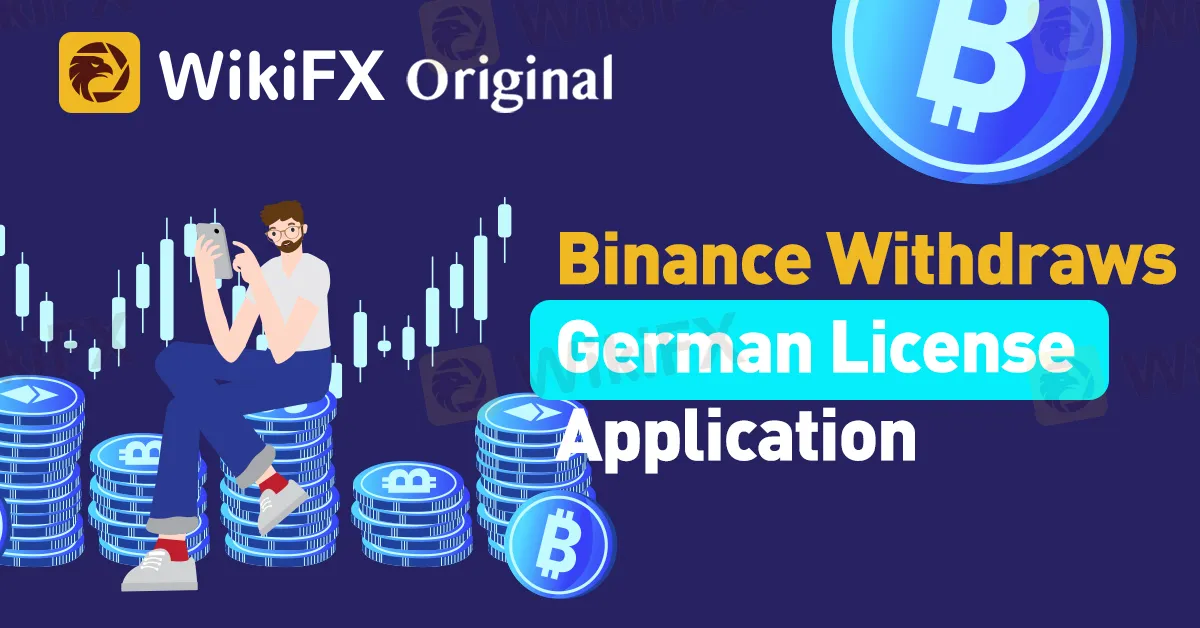简体中文
繁體中文
English
Pусский
日本語
ภาษาไทย
Tiếng Việt
Bahasa Indonesia
Español
हिन्दी
Filippiiniläinen
Français
Deutsch
Português
Türkçe
한국어
العربية
Binance Withdraws German License Application
Abstract:Binance, the world's largest cryptocurrency exchange, faces regulatory challenges in Europe, prompting the withdrawal of its application for a license from the German financial regulator, BaFin.

Binance, the largest cryptocurrency exchange in terms of volume, has taken a significant step by withdrawing its license application from the German financial regulator, BaFin. This decision was prompted by the regulator's refusal to grant Binance a cryptocurrency custody license, making the company rethink its plans to establish Germany as a prominent crypto hub in Europe. Notably, this move comes amidst mounting pressure from regulators worldwide, compelling Binance to reassess its global operations.
Reports from June, citing insiders at BaFin who spoke with Fast Forward, revealed that the German regulator was unwilling to approve Binance's application for crypto custody services. The exchange had high hopes of solidifying its presence in Europe through Germany but faced resistance from the regulatory authorities.
Binance's decision to withdraw its application is part of a broader trend that has seen the company exiting several European markets. Austria, Belgium, and the Netherlands are some of the markets from which Binance has already withdrawn. Moreover, the exchange's American arm is currently embroiled in a legal battle with regulators due to its operation as an unlicensed exchange in the United States.

A spokesperson from Binance confirmed the development, stating, “The situation, both in the global market and regulation, has changed significantly. Binance still intends to apply for appropriate licensing in Germany, but it is essential that our submission accurately reflects these changes.” This indicates that Binance remains committed to obtaining the necessary licenses to operate in Germany, but they seek to align their application with the evolving regulatory landscape.
Facing mounting regulatory challenges in Europe, Binance has been compelled to withdraw its licensing applications from various European nations. The company's key executives responsible for spearheading its European operations have either already left the firm or are preparing to do so. Earlier this year, Michael Wild, who played a vital role in expanding Binance's presence in Germany, Switzerland, and Austria, departed from the exchange.
In addition to Germany, Binance has faced setbacks in other European countries. They decided to withdraw from the Netherlands after an unsuccessful attempt at registration, relinquished their registration with Cyprus' securities commission, and received a directive to cease activities in Belgium. Despite facing a money laundering investigation, Binance's CEO, Changpeng “CZ” Zhao, stated in June that France remained the company's flagship location in Europe, underscoring their determination to maintain a strong presence in the region.
As Binance navigates through these regulatory hurdles, its focus on complying with evolving rules and seeking appropriate licenses remains a top priority. The cryptocurrency exchange continues to adapt to the dynamic regulatory landscape while strategizing its European operations.

Disclaimer:
The views in this article only represent the author's personal views, and do not constitute investment advice on this platform. This platform does not guarantee the accuracy, completeness and timeliness of the information in the article, and will not be liable for any loss caused by the use of or reliance on the information in the article.
Read more

California Cracks Down on Crypto Scams: 42 Websites Shut Down in $6.5M Bust
California Attorney General Rob Bonta announced earlier this week that the state had taken decisive action against fraudulent cryptocurrency operations. Authorities successfully shut down 42 scam websites responsible for deceiving investors out of at least $6.5 million.

Immediate Edge Review 2025: Is it safe?
Launched in 2019, Immediate Edge claims to be an automated cryptocurrency trading platform using AI technology for crypto trading services. The platform requires a minimum deposit of $250 to begin trading, which is relatively expensive for many investors. During its short operation, Immediate Edge failed to establish a positive reputation. The platform has undergone frequent domain changes and has repositioned itself as an intermediary connecting users with investment firms—a move that appears designed to obscure its actual operations. Immediate Edge restricts services to investors from the United States; it remains accessible to users in other regions.

Ripple Secures Dubai License: First Blockchain Payments Provider in DIFC
Ripple gains Dubai regulatory license, becoming the first blockchain payments provider in DIFC, boosting crypto innovation in the UAE.

Why Cryptocurrency is Truly the Future of Trading?
Benjamin Bilski unveils a new crypto platform aiming to solve market inefficiencies, with decentralized liquidity pools and AI-driven trading solutions.
WikiFX Broker
Latest News
How to Avoid Risks from Scam Brokers in Forex Investment
Will Trump's Trade Policies Fuel Inflation? BlackRock Warns of Economic Risks
WikiFX "3·15 Forex Rights Protection Day" – Official Release of the Blacklist
Why Scammers Let You Win Before Taking It All
A Must-To-Watch Top Trading Pairs This 2025
Currency Calculator






